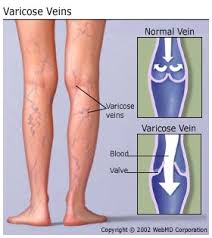
Image: webmd.com
Dr. Rajan Bhatt, a cardiologist based in Scottsdale, Arizona, is the CEO and founder of Spectrum Dermatology and Vein Center. There, Dr. Rajan Bhatt provides patients with clinical expertise related to conditions such as varicose veins.
Varicose veins result when blood collects in blood vessels, causing them to become enlarged. These veins can be painful, causing noticeable discomfort and symptoms such as tenderness, pain, swelling, cramping, or itching. The condition most often occurs in a patient’s legs.
Women can develop varicose veins while pregnant. During pregnancy, a woman’s blood flow increases. As she gains weight and produces extra hormones, varicose veins may appear. The veins often shrink after the baby is born. The condition affects between 10 and 20 percent of pregnant women. While there isn’t one specific way to prevent varicose veins from forming, several lifestyle changes may be helpful.
–Stay off your feet. By elevating their legs when sitting down, pregnant women can help prevent blood from pooling in the legs. When a job requires a pregnant woman to be on her feet for long periods, experts suggest alternately resting each leg on a stool or chair while standing.
–Exercise. Cardiovascular activity helps blood keep glowing at a healthy rate throughout the body.
–Wear comfortable clothing. Avoid restrictive items such as tight belts, shoes, or socks.
–Watch weight gain. Gaining an appropriate amount of weight during pregnancy can help alleviate additional stress on the body.
-Focus on nutrition. A heart-healthy diet rich in nutrients not only helps the developing baby, but also the mother’s cardiovascular health. Prenatal vitamins are helpful supplements.
When pregnant women notice varicose veins, they should bring the condition to the attention of their physician. The doctor will monitor the veins throughout the pregnancy and may recommend consultation with a vein specialist.